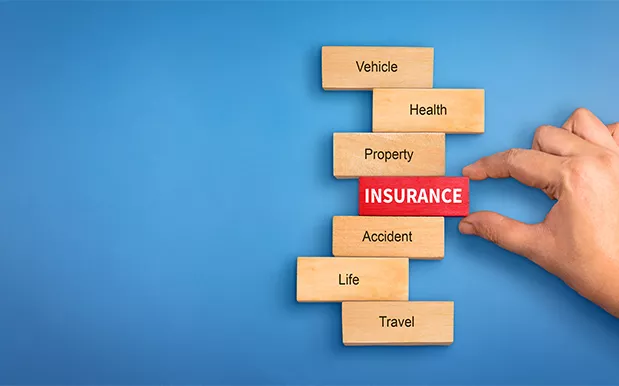In the vast landscape of financial products, insurance plays a crucial role in providing financial security and peace of mind. Among the various types of insurance, accidental death insurance stands out as a specialized form of coverage designed to protect individuals and their families from the unforeseen consequences of accidental death. This article aims to provide a comprehensive understanding of accidental death insurance, its coverage, and how it can benefit individuals.
What is Accidental Death Insurance?
Accidental Death Insurance, often abbreviated as AD&D (Accidental Death and Dismemberment Insurance), is a type of insurance that provides financial compensation to the beneficiary or the insured in the event of accidental death or dismemberment. Unlike traditional life insurance, which typically covers death from any cause, accidental death insurance is more specific, focusing solely on deaths resulting from accidents.
Accidental death insurance policies can be purchased as standalone products or as riders (additional coverage) attached to existing life insurance policies. The coverage provided by AD&D insurance varies significantly among different insurance providers, so it is essential to read the policy details carefully to understand what is and is not covered.
Coverage of Accidental Death Insurance
The primary coverage of accidental death insurance is straightforward: it provides financial compensation in the event of accidental death. However, the definition of “accidental death” and the specific circumstances covered can vary widely. Generally, accidental death insurance covers deaths resulting from:
Natural Environment Exposure: Deaths caused by exposure to extreme weather conditions, such as heatstroke, hypothermia, or drowning in natural bodies of water.
Traffic Accidents: Deaths resulting from car accidents, motorcycle accidents, pedestrian accidents, or accidents involving other forms of transportation.
Homicide: Deaths caused by others, excluding those related to criminal activities or wars.
Falls: Deaths resulting from falls, whether from heights or on the same level.
Drowning: Deaths caused by submersion in water, excluding suicides or attempts to commit suicide.
Accidents Involving Heavy Equipment: Deaths resulting from accidents involving machinery, construction equipment, or other heavy industrial tools.
Additional Coverage: Dismemberment
In addition to accidental death, many accidental death insurance policies also cover dismemberment. Dismemberment refers to the loss or loss of use of a body part or function, such as limbs, speech, vision, or hearing. This coverage can be particularly valuable for individuals who suffer severe injuries but do not die from the accident.
The specific terms of dismemberment coverage vary by policy. Some policies may cover partial losses, such as the amputation of a finger or toe, while others may require more significant losses, such as the loss of a limb or an eye. In some cases, dismemberment coverage may also include the loss of functional abilities, such as the inability to speak or see.
The Importance of Reading Policy Details
While accidental death insurance provides valuable coverage, it is crucial to read the policy details carefully. The coverage provided by different insurance providers can vary significantly, and some policies may have exclusions or limitations that could affect your ability to receive compensation.
For example, some policies may exclude deaths caused by extreme sports, hazardous activities, or war. Others may have specific time limits for reporting accidents or may require specific types of evidence to support a claim. By reading the policy details, you can ensure that you understand what is covered and what is not, and make informed decisions about whether the policy meets your needs.
Benefits of Accidental Death Insurance
Accidental death insurance offers several benefits that can provide financial security and peace of mind. Here are some of the key benefits:
1. Financial Protection for Families
In the event of accidental death, accidental death insurance can provide financial compensation to the beneficiary, helping to cover expenses such as mortgage payments, childcare, and daily living costs. This can be particularly valuable for families who rely on the income of the deceased individual.
2. Coverage for High-Risk Activities
While traditional life insurance may exclude coverage for high-risk activities, accidental death insurance may provide coverage for deaths resulting from these activities. This can be particularly important for individuals who participate in sports, hobbies, or professions that involve a higher risk of accidental death.
3. Affordable Coverage
Accidental death insurance is often more affordable than traditional life insurance, especially for younger individuals. This can make it a more practical option for those who want to provide financial protection for their families but may not have the budget for a comprehensive life insurance policy.
4. Additional Coverage Options
Many accidental death insurance policies offer additional coverage options, such as dismemberment coverage, critical illness coverage, or accidental medical expense coverage. These options can provide even more comprehensive protection against the unforeseen consequences of accidents.
Comparison with Other Types of Insurance
To fully understand the value of accidental death insurance, it is helpful to compare it with other types of insurance. Here are some comparisons:
1. Traditional Life Insurance
Traditional life insurance provides coverage for death from any cause, including illness, natural causes, and accidents. While accidental death insurance is more specific, focusing solely on accidental deaths, traditional life insurance offers broader coverage. However, it is also typically more expensive and may not be suitable for individuals who want to focus specifically on accidental death coverage.
2. Disability Insurance
Disability insurance provides financial compensation in the event of a disability that prevents the insured from working. While accidental death insurance covers deaths resulting from accidents, disability insurance covers disabilities that may or may not be related to accidents. Disability insurance can be particularly valuable for individuals who rely on their income to support themselves and their families.
3. Critical Illness Insurance
Critical illness insurance provides coverage for specific illnesses, such as cancer, heart disease, or stroke. While accidental death insurance does not cover illnesses, critical illness insurance can provide financial compensation to help with medical expenses and daily living costs. This can be particularly valuable for individuals who have a family history of these illnesses or who want additional protection against the financial consequences of a critical illness.
4. Accidental Medical Insurance
Accidental medical insurance provides coverage for medical expenses resulting from accidents. While accidental death insurance covers deaths resulting from accidents, accidental medical insurance covers the costs of medical treatment, such as hospital stays, surgeries, and rehabilitation. This can be particularly valuable for individuals who want protection against the high costs of medical treatment following an accident.
Choosing the Right Accidental Death Insurance Policy
When choosing an accidental death insurance policy, there are several factors to consider to ensure that you select the right coverage for your needs. Here are some key considerations:
1. Coverage Limits
Determine the amount of coverage you need based on your financial situation and the needs of your family. Consider factors such as mortgage payments, childcare costs, and daily living expenses to determine an appropriate coverage limit.
2. Policy Details
Read the policy details carefully to understand what is covered and what is not. Pay attention to exclusions and limitations that could affect your ability to receive compensation. Make sure that the policy meets your needs and provides the coverage you expect.
3. Additional Coverage Options
Consider whether you want additional coverage options, such as dismemberment coverage, critical illness coverage, or accidental medical expense coverage. These options can provide even more comprehensive protection against the unforeseen consequences of accidents.
4. Price and Value
Compare the prices and coverage of different policies to find the best value for your money. Consider the cost of the policy relative to the potential benefits it provides. Remember that the cheapest policy may not always be the best choice if it does not provide adequate coverage.
5. Insurance Provider
Choose a reputable insurance provider with a good track record of paying claims. Research the provider’s financial strength, customer service, and claims handling process to ensure that you can trust them to provide the coverage you need when you need it.
Conclusion
Accidental death insurance is a valuable financial product that can provide financial security and peace of mind in the event of accidental death. By understanding the coverage provided by accidental death insurance and considering factors such as coverage limits, policy details, additional coverage options, price, and insurance provider, you can select the right policy for your needs. Remember to read the policy details carefully and choose a reputable insurance provider to ensure that you have the coverage you need when you need it.
In summary, accidental death insurance is a specialized form of coverage that provides financial compensation in the event of accidental death or dismemberment. While the coverage provided by different policies can vary, the primary focus is on deaths resulting from accidents. By reading the policy details carefully and considering factors such as coverage limits, additional coverage options, and price, you can select the right accidental death insurance policy for your needs. This coverage can provide valuable financial protection for your family and help you maintain peace of mind in the face of uncertainty.
Related topics:


































